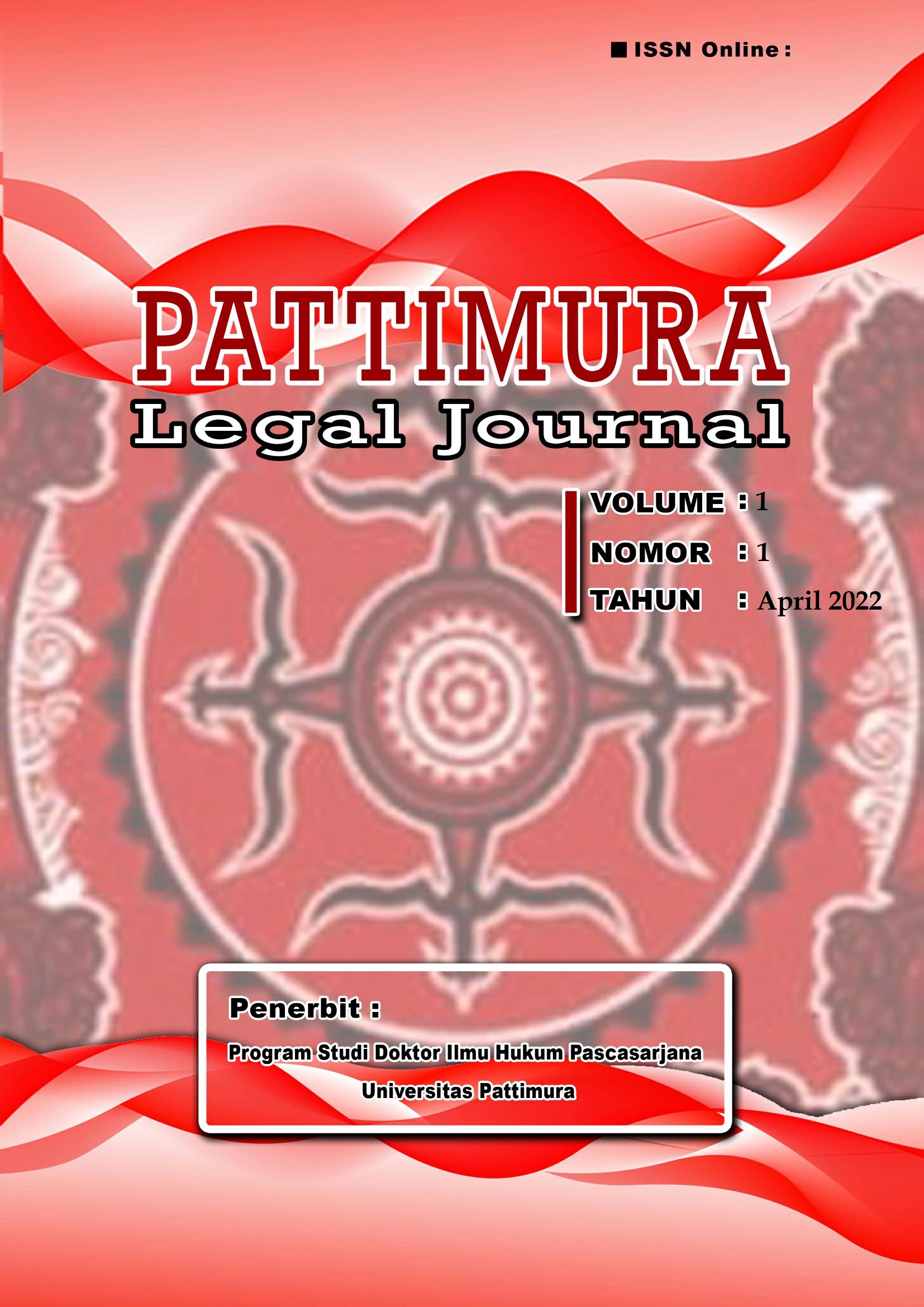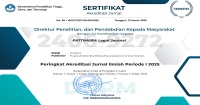Kekuatan Eksekutorial Putusan Mahkamah Konstitusi Yang Bersifat Final Dan Mengikat di Indonesia
Abstract
Introduction: The Constitutional Court is a state institution that has judicial authority based on the 1945 Constitution which has the constitutional authority to conduct judicial review of the 1945 Constitution whose decisions are final and binding. However, in the implementation of the judicial review of the 1945 Constitution by the Constitutional Court, many decisions of the Constitutional Court were not carried out by other State Institutions or Government Agencies which have the obligation to follow up and implement the Constitutional Court Decisions. If the decision of the Constitutional Court is not implemented in the Unitary State of the Republic of Indonesia, it can legally interfere with the administration of government as a result of not implementing the decision of the Constitutional Court as a State Institution that has attribution authority in the 1945 Constitution of the Republic of Indonesia.
Purposes of the Research: To analyze the Executive Power of the Decisions of the Constitutional Court which are final and binding in Indonesia
Methods of the Research: The type of research used in this writing is normative juridical research.
Results of the Research: The results show that the Constitutional Court's decision has executive power because it is final and binding when pronounced by the Constitutional Court Judge, and the Constitutional Court's decision actually has a juridical position as law and is used as a source of law by the DPR and the Government in forming laws. related to the decision of the Constitutional Court
Downloads
References
Jurnal
Maulidi, M Agus. “Menyoal Kekuatan Eksekutorial Putusan Final Dan Mengikat Mahkamah Konstitusi.” Jurnal Konstitusi 16, no. 2 (2019): 339–62. https://doi.org/10.31078/jk1627.
Prang, Amrizal J. “Implikasi Hukum Putusan Mahkamah Konstitusi.” Kanun: Jurnal Ilmu Hukum 13, no. 1 (2011): 77–94.
Buku
Asshiddiqie, Jimly, and M Ali Safa’at. Teori Hans Kalsen Tentang Hukum. Jakarta: Sekretariat Jendral & Kepaniteraan Mahkama Konstitusi RI, 2006.
Aziz, Machfud. Pengujian Peraturan Perundang-Undangan Dalam Sistem Peraturan Perundang-Undangan Indonesia. Jakarta: Sekertariat Jenderal & Kepaniteraan Mahkamah Konstitusi, 2010.
Daulay, Ikhsan Rosyada Parluhutan. Mahkamah Konstitusi: Memahami Keberadaannya Dalam Sistem Ketatanegaraan Republik Indonesia. Jakarta: Rineka Cipta, 2006.
Faqih, Mariyadi. Nilai-Nilai Filosofi Putusan Mahkamah Konstitusi Yang Final Dan Mengikat. Jakarta: Sekertariat Jenderal & Kepaniteraan Mahkamah Konstitusi, 2010.
Kelsen, Hans. Teori Murni: Dasar-Dasar Ilmu Hukum Normatif Sebagai Ilmu Hukum Empirik-Deskriptif. Translated by Somardi. Jakarta: Rimdi Press, 1995.
Mahfud, Subhan. Keadilan Hukum Dan Kemanusiaan. Surabaya: Visi Press, 2008.
Marzuki. Metode Riset. Yogyakarta: UII Press, 2005.
MD, Moh. Mahfud. “Titik Singgung Wewenang Antara MA Dan MK.” Makalah Seminar Tentang Titik Singgung Wewenang Antara Mahkamah Agung Dan Mahkamah Konstitusi Yang Diselenggarakan Badan Litabng Diklat Hukum Dan Peradilan Mahkamah Agung RI. Jakarta, November 2014.
Siahaan, Maruarar. Hukum Acara Mahkamah Konstitusi. Jakarta: Konstitusi Press, 2010.
Soekanto, Soerjono, and Sri Mamudji. Penelitian Hukum Normatif, Suatu Tinjauan Singkat. Jakarta : Raja Grafindo Persada. Jakarta: Rajawali Pers, 2015.
Copyright (c) 2022 Amien Ru'ati, Garciano Nirahua, Ronny Soplantila (Author)

This work is licensed under a Creative Commons Attribution-NonCommercial 4.0 International License.
Authors who publish their manuscripts in this Journal agree to the following conditions:
- The copyright in each article belongs to the author, as well as the right to patent.
- Authors are able to enter into separate, additional contractual arrangements for the non-exclusive distribution of the journal's published version of the work (e.g., post it to an institutional repository or publish it in a book), with an acknowledgment of its initial publication in this journal.
- Authors are permitted and encouraged to post their work online (e.g., in institutional repositories or on their website) prior to and during the submission process, as it can lead to productive exchanges, as well as earlier and greater citation of published work.
- Authors have the right to self-archiving of the article (Author Self-Archiving Policy)






















